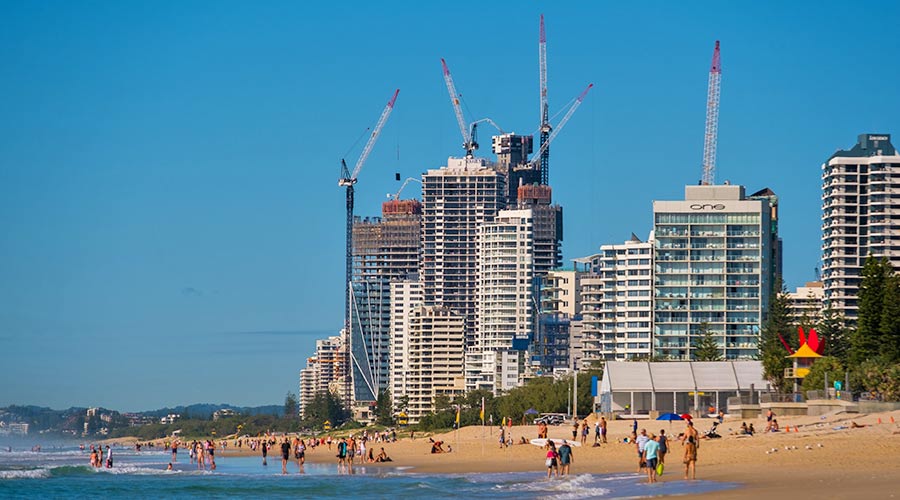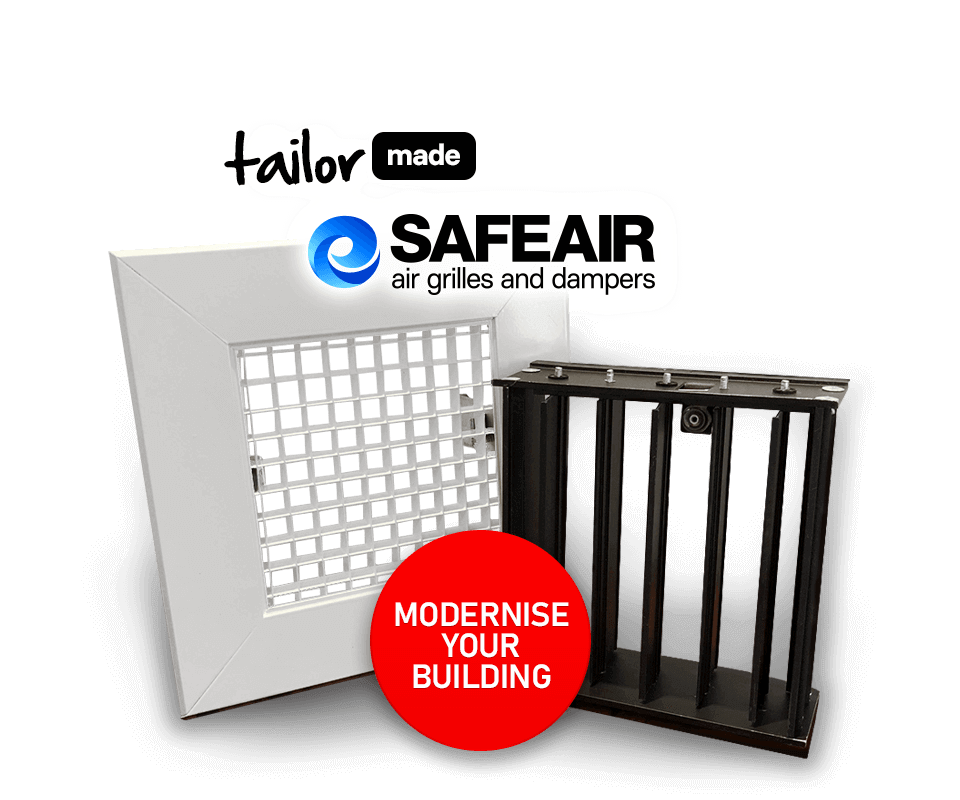Negative Impacts Of Roadworks, Construction And Infrastructure Upgrades On Air Duct Systems
Negative Impacts Of Roadworks, Construction And Infrastructure Upgrades On Air Duct Systems
Negative Impacts Of Roadworks, Construction And Infrastructure Upgrades On Air Duct Systems
With urban city developments on the rise, increasing roadworks, construction and infrastructure upgrades, our ventilation systems and ducted air conditioning systems are bearing the brunt of these growth changes more than ever before.
As the old saying goes ‘where there’s smoke – there’s fire’.
With South-East Queensland’s rapidly expanding city centres, high-rise and low-rise apartment developments and transport upgrades to satisfy the regions growing demand – there may be no better time to bring an old statement into the modern day – ‘where there’s cranes and council workers – there’s dirt and dust’.
Who would have thought that the Gold Coast’s then booming high-rise developments and construction during the 1980’s would have led us to where we are today.
In 2012 photographer John Gollins walked the Gold Coast and noted almost every development along the coastline – a whopping count of 650 buildings. Construction began on the GLINK light rail system at Southport in 2010 and continued through the narrow highways and streets of Surfers Paradise and Broadbeach through to late 2013.
Over roughly 33 years, that’s a huge amount of construction, a ton of roadwork – and a whole pile of dirt and dust that made its way not just into surrounding suburban areas, but into unit owners open doors and windows, apartment ventilation systems as well as commercial air conditioning duct systems. But the growth isn’t stopping anytime soon. The Australian Financial Review has counted over 1400 new apartments spanning a dozen projects that are about to spring-up throughout Surfers Paradise, Southport and Broadbeach over this next year.
Brisbane also continues to boom with its deconstruction of the old to make way for the new. Brisbane City Council plans to add another 50 high-rise buildings into the CBD district over the next 20 years and forecasts an 80 percent increase in public transport.
If Deputy Premier Jackie Trad’s growth figures become a reality an expected 2 million people will call South-East Queensland home by 2041, increasing the population to 5.3 million. By 2061, the population was expected to increase to 10 million.
That’s an even BIGGER truck-load of dirt, dust and construction coming our way.

Pictured: Cranes fill the skyline as high-rise apartments are constructed on the Gold Coast, Queensland
The Negative Impact Of Growth On Apartment Ventilation Systems And Air Conditioning Duct Systems
The whole design of a buildings ventilation system is to extract air from its surrounds throughout a connected duct system to atmosphere. The ventilation system is installed during initial construction of the building. In the majority of apartment buildings you can locate the ventilation system entry points (called air registers or grilles – commonly air vents) in each apartments bathroom, en suite, toilet and laundry areas. The air registers connect to ducts within the apartments ceiling space and out to a central riser system. The central riser system is then connected to a roof exhaust fan and associated ducting on the roof of the building.
In commercial ducted air conditioning systems, a series of supply-air inlets draw air from the surrounding areas into the system where the air is chilled and pushed back out via the return air ducts. Large scale return air ducts can become contaminated where the ambient room temperate meets and mixes with the systems cooled air within the duct. Condensation forms on the interior of the duct allowing dust, dirt and debris from our dirty and dusty environments to line its interior.
With all of the construction, roadwork and development taking place in nearby or surrounding areas, the dirt, dust and fibrous matter within the air and the exterior environment can be pulled into the apartment through open doors, windows, cracks and even gaps.
If there’s a combination of elements apartment ventilation systems and ducted commercial air conditioning systems strongly dislike – it’s humidity or air water vapour, dust, dirt and fibrous matter. Queensland can be subjected to long periods of extremely high temperates during its summer months and extended periods of high humidity for up to 4 months of the year adding even more air moisture to the equation. Humidity, steam and water vapour within apartment ventilation ducts allow blockages to form more quickly and can even present potential health hazards with mould and microbial growth.
In apartment buildings, if you add in the scenarios of steamy bathrooms and tight, hot laundry areas, we end up with a system that over a reasonably short amount of time can start to clog and eventually block air from being sucked in to the ventilation system from our most personal spaces.
What Can We Do To Minimise The Impact And Keep Air Flowing?
Arrange A Site Survey Or Free Quotation
For more information on deep-cleaning your buildings Ventilation System or Air Conditioning, talk to one of our Project Team members on 07 5562 0028 or email us online.
Fire, dirt and mould risks – gone. Is your apartment building or unit complex at risk? Are you meeting Australian Standards guidelines for 8-24 air-changes per hour? By deep cleaning your buildings exhaust ventilation system with SafeAir you will remove years of potentially harmful and hazardous build-up, increase airflow throughout toilet, bathroom, en suite and laundry areas, restore your roof exhaust fans as well as increase overall system efficiency.
Services >
Fire, dirt and mould risks – gone. Is your apartment building or unit complex at risk? Are you meeting Australian Standards guidelines for 8-24 air-changes per hour? By deep cleaning your buildings exhaust ventilation system with SafeAir you will remove years of potentially harmful and hazardous build-up, increase airflow throughout toilet, bathroom, en suite and laundry areas, restore your roof exhaust fans as well as increase overall system efficiency.
Services >
Apartment, Resort & Hotel Exhaust Ventilation Duct System Cleaning
Fire, dirt and mould risks – gone. Is your apartment building or unit complex at risk? Are you meeting Australian Standards guidelines for 8-24 air-changes per hour? By deep cleaning your buildings exhaust ventilation system with SafeAir you will remove years of potentially harmful and hazardous build-up, increase airflow throughout toilet, bathroom, en suite and laundry areas, restore your roof exhaust fans as well as increase overall system efficiency.
Subscribe For News & Updates
Get the latest on Duct Cleaning, Special Promotions and SafeAir






